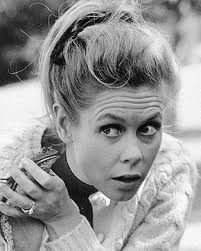Thank
you for joining me again in Detoxing Your Home.
In
this part we will begin to look at personal care products.
There's
good news and there's scary news!
Let's
do the scary bit first.
In
mainstream personal care products (including skin care, deodorants,
moisturisers, soaps, shampoos...) the ingredients are mainly
chemical.
There
are over 10,000 different chemicals used in the personal care
products industry – and very few (nowhere near even a third) of
them have been tested for their safe use.
It
takes the authorities about 3-5 years to test one chemical (there are
many reasons for this – but now is not the time). In the meantime,
there are hundreds of chemicals that are released every year.
Hundreds of untested chemicals.
What
is tested and accepted in the US is deemed appropriate for use here
in Australia.
The
general rule is that they are safe unless proven unsafe. Now, I get
the innocent until proven guilty for individuals, but not chemicals.
Chemicals are used widely in products that are distributed all over
the world. They affect millions of people – adversely.
Now
for the scary bit (yes, that was
scary – but you ain't seen nothing yet!).
These chemicals are not used
alone. They are used in combination.
What research is showing is
that if chemical A causes x and y, and chemical B causes g.
Naturally, then you would
expect that chemicals A and B, when used together would cause x + y +
g. It's simple mathematics, right?
Wrong! Very, very, very wrong.
Reseachers are finding that
when they test chemicals in combination, they are getting results
that are way off the scale.
Adding salt to the injury, I
must also tell you about the “safe levels.”
Standards
are set for “safe” use of chemicals (ie levels that only kill
less than 50% of the animals that they were tested on). But what is
not considered is, that unlike the rats that may only get to “wear”
chemical S, humans get a combination of up to 20 different personal
care products per day – which themselves are made from anywhere
upwards of 10 different chemicals (more likely to be in the hundreds or thousands). What happens when you combine all
of those “safe” individual levels?
I can't tell you,
because no one actually knows!!
That's scary!
The good bit? There are many
companies and small businesses that are making products that are a
lot safer. Next time, we will talk about what to look for, and what
to avoid.
Thanks for joining me.

















